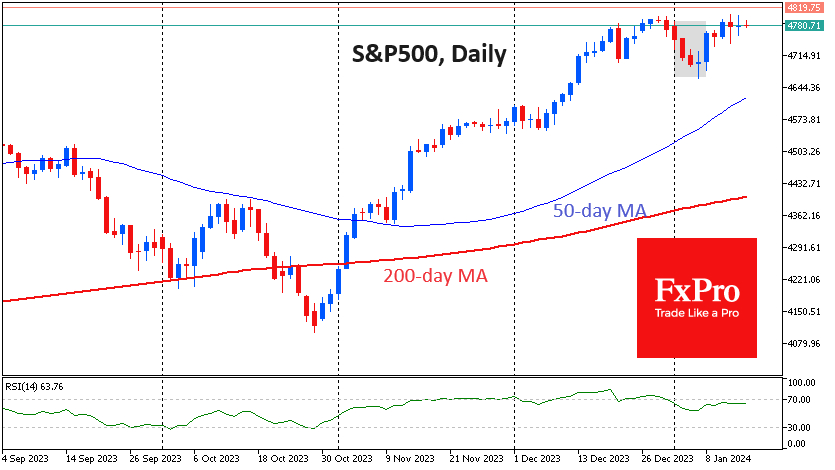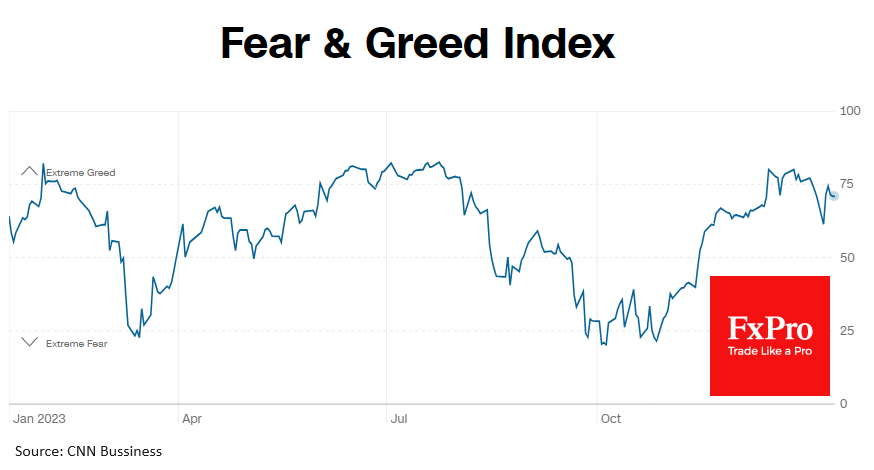US equity indices declined in the first five trading sessions of January. This dynamic promises a challenging year for the stock market, according to the old "first five days" rule.
Identifying a defining trend would have been an easy task if not for stabilization on the day of the NFP release on January 5 and a strong rally on January 8.
The “first five days” rule was popularised by Jim O'Neil during his time working for investment banks. Don't limit yourself to this rule for the entire year, but consider it as a sentiment for the year.
The last time this method misfired was in 2018, but after that, it correctly determined five times whether the S&P 500 would end the year up or down. The indicator also predicted a decline in 2016, but that was a year of growth after the prolonged stagnation of 2015 and an 11% plunge in January.
We now tend to agree with the “first five days” sentiment. The S&P 500 index broke the highs of late last week and was only 0.8% away from an all-time high.
The US stock market was near highs last week as markets strengthened on expectations of more aggressive rate cuts from the Fed. Currently, rate futures see a cut at every meeting since March as the main scenario. The driver has been weaker ISM services and producer price indices, but the usually weightier, stronger employment and consumer inflation data is ignored.
In addition, we are dismayed to see that the level of greed in the markets has bordered on extreme greed over the past month. Declines out of extreme greed often precede corrections and sometimes give rise to bear markets.
It may well be that the bulls squeezed everything they could out of the last rally, including abundant short-squeezes from recession-expecting bears and extremely dovish expectations from the Fed for this year.
The coming year may prove to be as challenging and clear-cut as the first five trading sessions have been, but still more indicators point to a correction than a continued rally, at least in the coming weeks.
The FxPro Analyst Team
